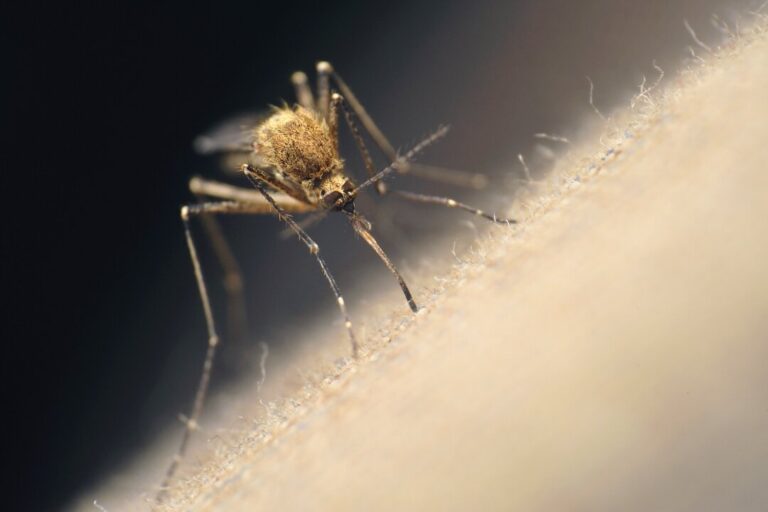🎧 Listen to This Article
PIERRE – A recent shift in South Dakota’s tobacco tax policy, signed into law by Governor Larry Rhoden, is stirring concern among local governments, especially in smaller cities and counties. The changes, which reduce funding for anti-smoking programs and redirect revenue to the state’s general fund, will leave many municipalities without the state-sponsored mosquito control grants they’ve relied on for over a decade. The move, which cuts funding by $500,000, could leave South Dakotans more vulnerable to mosquito-borne diseases, including West Nile virus.
Context & Background – The Tobacco Tax Shift:
On April 3, 2025, Governor Rhoden signed Senate Bill 54 into law, slashing the state’s tobacco tax revenue used for public health programs. The annual allocation to smoking cessation programs has been reduced from $5 million to $2 million, with the remaining funds funneled into the state’s general budget. While supporters argue that smoking rates have dropped and the state needs the funds to cover expanding Medicaid, critics fear the reduction in tobacco prevention programs may lead to a rise in nicotine use, particularly through vaping.
A less-publicized consequence of this bill is the termination of mosquito control funding for local governments. Since 2014, South Dakota has used a portion of its tobacco tax revenue to provide cities and counties with grants aimed at reducing the risk of West Nile virus. However, these grants will no longer be available starting in July 2025, potentially putting public health at risk.
Impact on Mosquito Control Programs:
For over a decade, South Dakota used tobacco tax revenue to fund mosquito control grants, which were critical in the fight against West Nile virus. The money supported local governments in purchasing insecticides and equipment for spraying. The loss of this funding, amounting to $500,000 annually, will force many smaller cities to find alternative sources for mosquito control, which could be a difficult task given tight budgets.
Key points on the impact:
- Grant Reduction: The $500,000 previously allocated for mosquito control will no longer be available starting in July 2025.
- Health Risk: The loss of these grants could lead to fewer resources for monitoring and controlling mosquitoes, increasing the risk of West Nile virus, which has already killed 54 South Dakotans since 1999.
- Small Town Struggles: Smaller towns like Viborg and Groton, with limited budgets, will face greater challenges in replacing the lost funding, potentially impacting their ability to manage mosquito populations effectively.
Government Reactions – Balancing Budgets and Public Health:
The tobacco tax revenue shift comes as part of broader efforts to address South Dakota’s financial needs, particularly the funding of its expanded Medicaid program. While proponents argue that the move is fiscally responsible given the state’s growing health care costs, critics contend that it neglects the long-term public health risks, such as the resurgence of preventable diseases like West Nile virus.
Some lawmakers and public health experts, including Jennifer Stalley from the American Cancer Society, have voiced concerns that the shift undermines the state’s commitment to tobacco prevention. However, Bureau of Finance and Management Commissioner Jim Terwilliger defended the policy, saying that smoking rates have dropped significantly, and that it was “not smart” to continue funneling tobacco money into mosquito control.
Local Community Responses – Preparing for Uncertainty:
While larger cities like Sioux Falls have enough resources to continue mosquito control efforts without state funding, smaller towns are more vulnerable. Viborg, for example, expects to continue mosquito spraying this year using funds available until July, but after that, they face uncertainty.
Groton, a small town surrounded by wetlands, also struggles with the risk of West Nile virus. Local officials in both towns are hopeful that the state will find a way to continue supporting mosquito control efforts, but with no clear replacement funding on the horizon, they are preparing for potential cuts.
Sioux Falls, by contrast, has proactively budgeted $750,000 for mosquito control, anticipating the end of state grant funding. Public Health Director Joe Kippley reassured residents that the city’s mosquito control services will continue without interruption.
Historical Context – The Tobacco Tax Funding Setup:
The connection between tobacco taxes and mosquito control began in 2006 when South Dakota voters passed Initiated Measure 2, which increased the tobacco tax. While most of the revenue went to the state’s general fund, a portion was allocated for tobacco prevention programs and health care trust funds. In 2014, South Dakota began redirecting $500,000 of the tobacco tax money to mosquito control programs, an effort aimed at combating the rising threat of West Nile virus. However, with the passage of Senate Bill 54, the state has now discontinued this allocation.
What’s Next – The Future of Mosquito Control:
With the loss of tobacco tax funding for mosquito control, state and local public health officials face an uncertain future. Although federal funding for West Nile virus research and prevention is still available, the state’s ability to continue its local mosquito control programs at the same scale is in jeopardy. Health officials will continue to monitor the situation, but without replacement funding, the success of mosquito control efforts in South Dakota remains uncertain.
Conclusion – A Costly Trade-Off:
South Dakota’s decision to shift tobacco tax revenue away from mosquito control grants raises questions about the long-term consequences of balancing state budgets at the expense of public health initiatives. While the goal of expanding Medicaid and funding other government services is vital, the loss of resources for combating diseases like West Nile virus could have far-reaching effects, particularly in smaller communities.
As the state’s fiscal year comes to a close in July 2025, cities and counties will have to decide how to allocate limited funds for mosquito control, all while facing the looming threat of mosquito-borne diseases.
For further details, clarification, contributions, or any concerns regarding this article, please contact us at editorial@tax.news. We value your feedback and are committed to providing accurate and timely information. Please note that our privacy policy will handle all inquiries



